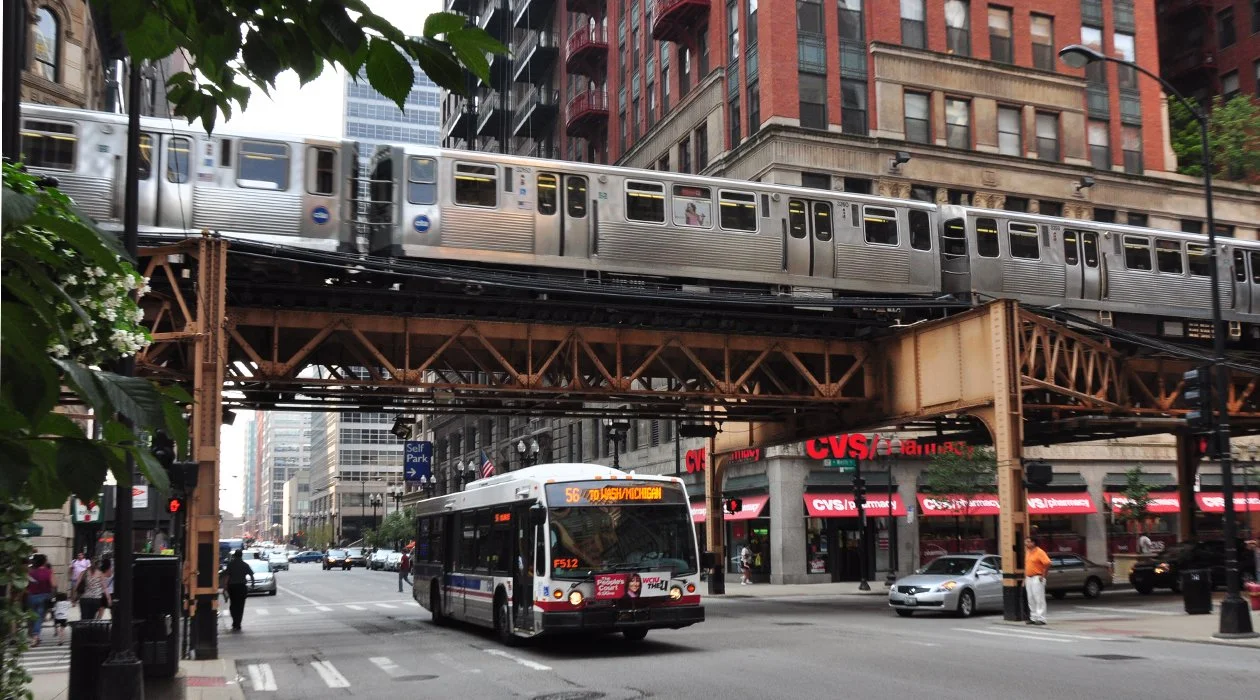Illinois as a model for California? Bill to coordinate service and reform capital project delivery advances in Illinois
The State of Illinois may be leapfrogging ahead of California with a bill to reform governance, funding and transit project delivery for Chicago Transit Authority, Metra and Pace (suburban bus). SB 3438 would replace the existing Regional Transportation Authority (RTA), the Metropolitan Planning Organization (MPO) for the Chicago region, with the Northern Illinois Transit Authority (NITA) to coordinate schedules and fares for these services. NITA’s full set of responsibilities and authorities would make arguably the first true ‘network manager’ in the United States - and could thus be transformative in leading toward a seamlessly integrated network in the greater Chicago region. This is a result of transit advocates educating transit leaders, electeds and other stakeholders about the benefits of best practice in transit planning via a trip to Munich and Berlin.
Under the bill, NITA would also do service-led planning, benefit/costs analyses of transit projects, and 5 year framework agreements for capital projects.
While NITA and SB 3438 are currently being negotiated by electeds the debate is largely focused on revenues. So far there is no large outcry from agencies or the public about service-led planning, benefit/cost analyses or framework funding agreements.
SB3438 was passed by the Illinois State Senate, and is up for discussion during the Assembly “veto session” between October 14 and October 30, when the Assembly can consider overriding governor vetoes and advancing bills that stalled in the legislative session.
If the long-fragmented metro area of Chicago and its suburbs can agree on adopting world-class policies to improve transit project delivery, then so can California.
In some respects, California has been a leader within the US in taking initial steps toward international best practices for coordinated transit;.
For example:
The Bay Area is making progress on coordinated fares, schedules, and unified wayfinding, thanks to the region setting up a dedicated function for regional network management, coordinated by MTC.
California’s State Rail plan embraces the concept of a ‘service based’ long range plan that supports coordinated statewide service and coordinated infrastructure planning;
Caltrain is a leader among American services historically considered ‘commuter railroads’ in embracing the regional rail philosophy, shifting to an all-day more frequent bidirectional service, supported by electrification.
At the same time California’s progress has been held back by inadequate transportation institutions and governance. Bay Area progress in advancing fare and service integration has been achingly slow and fragile due to operator preference for a ‘consensus-based model’ as opposed to one that establishes and empowered regional authority with sufficient funding and a clear mandate for service and fare coordination.
In addition, capital projects in California continue to be among the most expensive in the world due to lack of service-based planning and concentrated, in-house expertise to oversee delivery of megaprojects.
The State of Illinois faces many of the same challenges as California in terms of project delivery and service coordination. The current legislative initiative in Illinois seeks to address these root causes of insufficient governance that California has struggled with. With the conclusion of California’s Statewide Transit Transformation Task Force, advocates and the state legislature should closely consider Illinios’ example of putting in place an effective, empowered regional network manager to carry out the various functions of coordination in association with new funding.
In order to build legislative support, it could be powerful for a delegation of Californian legislators to follow the example of their Illinois counterparts and go on a delegation to Europe - to see with their own eyes the transformative power of seamless transportation and deeply understand the institutional reforms required to achieve it. Those who went on the trip went on to enthusiastically support SB 3848; as one Senator who participated commented afterward, "my biggest takeaway from Germany is that the intentionality and accountability is of the utmost importance. There’s accountability to the operators: if you’re X number of minutes late, you will be penalized. If you’re on time there’s opportunities to receive more funding. The delegation trip showed there can be integrated service that provides what riders want to see."
Sign up here to get our blog posts sent directly to your email.


